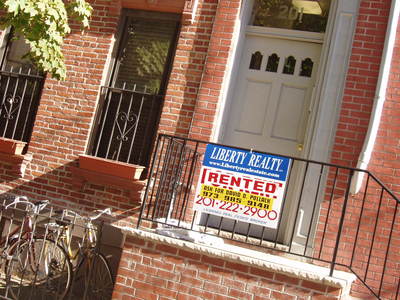A group of landlords says that tenants are unfairly getting back thousands of dollars in rent because the city is making incorrect decisions on what their rent should be, based on incomplete information from the past.
The Mile Square Taxpayers Association (MSTA) filed a motion in Hudson County Superior Court last month to stop the city from making Rent Control calculations until the city can defend its past administration of the law.
Hoboken’s Rent Control Ordinance, passed in 1973 and revised several times since then by the City Council, limits how much landlords can raise the rent each year on apartments built before 1987. In Hoboken, rent controlled units are usually limited to a 2 to 6 percent rent increase annually, determined by the rise in the cost of living index. Also, landlords can apply for a 25 percent increase every three years when the apartment is vacant and they have made upgrades to the premises.
Making a calculation
If a renter thinks their rent is inordinately high, or they suspect price gauging, they can call the city’s Rent Control Office and request a rent calculation.
In the past, tenants could find out what they should have been paying, and get reimbursed for years of overcharges from their landlords.
But some say that the city had not always kept good records, so landlords may be at an unfair risk.
Between 1981 and 2007, the city’s Rent Control office did not always keep proper records of the 25-percent vacancy decontrols, says Charles Gormally, the attorney for the MSTA.
In 2007, local tenant advocate Cathy Cardillo forced the city to demand evidence of any past vacancy decontrols if a landlord argued that a current rent was based on those. However, Gormally noted that the city had not always pushed landlords to file the required decontrol letter in the past, so many times, the city did not have any evidence on file.
Identifying the problem
Ron Simoncini, executive director of the MSTA, said landlords are being penalized for the city’s inability to follow the law, and that tenant advocates are taking advantage of the situation.
In some cases, tenants’ rents are being rolled back from $1,200 to $400 after they get a rent calculation, Simoncini said.
Simoncini also says that under the current law, the landlord may be liable even for a previous landlord’s mistakes.
There is also no statute of limitations – beside a 1981 base year stated in the law – to restrict residents from seeking restitution for rent overcharge. In the past, the City Council added a two-year limit, but the move was subsequently overturned.
On the tenants’ side
Cathy Cardillo, a tenant advocate, said the existing Rent Control Law may have flaws, but it protects tenants who have been overcharged without their knowledge.
She has won several cases over the years – including the 2007 decision – on behalf of tenants. These cases have tightened enforcement of the law, which Cardillo complains was not properly enforced or not enforced at all.
She cited landlords who charged tenants 10 times a city-approved surcharge and others who forced tenants out of their apartments so that they could apply for a 25-percent vacancy decontrol.
She attempted to get involved in the ongoing case with MSTA, but the judge denied her request because it was submitted too far along in the proceedings.
But she argues that the city has form letters for vacancy decontrols on file and that the rents that are being calculated are currently being done correctly.
On the landlords’ side
Simoncini said the landlords should not be held accountable for missing files.
“You can’t sue the government for failing to enforce the law,” he said. So he wants the office, when it does its calculations, to accept landlords’ evidence of vacancy decontrols before 2007, even if the form is not on file.
The form, he said, is just a formality for filing purposes, and shouldn’t prohibit the rent calculators from factoring in these increases.
“This is potentially hundreds of thousands of dollars,” Simoncini said. He said the advocacy of tenants in this regard amounts to the act of a “blood-sucking leech.”
City responds
City Attorney Steven Kleinman said the office is still calculating rents, and holds that they have been doing so to the letter of the law.
“Landlords under my tenure have been regularly suing the city Rent Control Board,” he said. “To this point they have been unsuccessful.”
He said the current challenge before the court will be heard this week and the city will be ready to defend its position.
“I’m not here to tell you this is a perfect ordinance by any means,” Kleinman said. “I do hope the next mayor analyzes this issue.”
Timothy J. Carroll may be reached at tcarroll@hudsonreporter.com.
